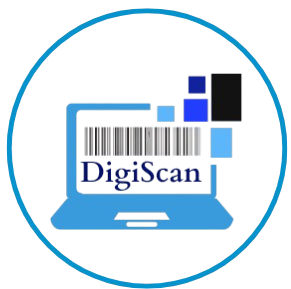






DigiScan is a robust Windows application developed using the .NET Framework, designed to streamline the conversion of bulk raw booklet data into structured, readable, and professionally formatted PDF documents.
1.Organize raw scanned data systematically based on booklet serial numbers for accurate sequencing and identification.
2.Generate optimized, lightweight PDF files to ensure efficient storage, sharing, and quick accessibility.
3.Perform quality checks on the raw data to ensure clarity, completeness, and correctness before final PDF generation.

Automatically organizes scanned bulk data into individual booklets by detecting and sorting files based on the barcode located on the first page of each booklet. Supports image formats such as JPEG, JPG, and PNG for seamless processing and arrangement.
Verifies and corrects the number of pages within each booklet folder to ensure it matches the expected page count of a student's actual answer booklet. This validation is based on the supplementary sheets allotted for the exam, ensuring accuracy and completeness of each booklet before final processing.
Enables marking of student attendance by identifying absentees either through barcode scanning or by referencing an uploaded attendance sheet. This feature ensures accurate tracking and verification of student presence during examinations.
Converts each individual booklet folder into a single PDF file by compressing the images to reduce file size, without altering the original image dimensions or compromising visual clarity. This ensures optimal storage efficiency while maintaining high-quality output.
Produces standardized, readable PDFs that can be easily integrated into downstream systems for evaluation, storage, or digital workflows.
By automating tedious processes and reducing manual intervention, DigiScan significantly lowers operational costs and accelerates workflow.
Designed to handle large volumes of data, making it ideal for educational institutions, assessment centers, and organizations that deal with high volumes of exam booklet processing.
Eliminates manual sorting by automatically arranging scanned pages into structured booklets based on barcode detection, saving time and reducing human error.
Ideal for managing and digitizing examination booklets, student records, and attendance data efficiently.
Useful for organizing, compressing, and archiving large volumes of scanned documents such as reports.
Perfect for service providers dealing with bulk document digitization, ensuring structured output, efficient storage, and easy retrieval of scanned data.